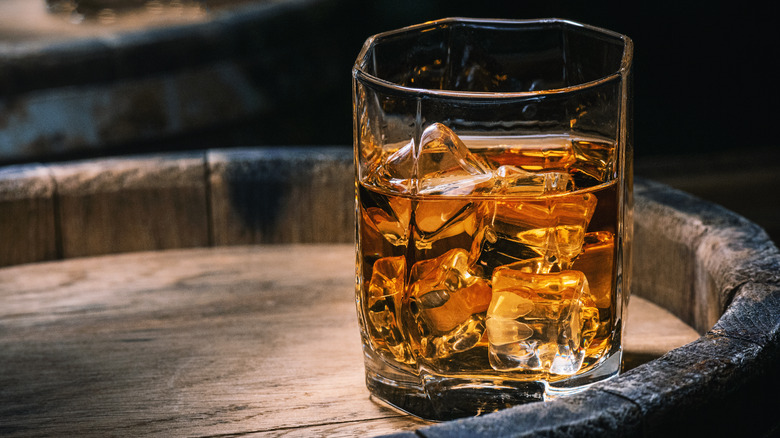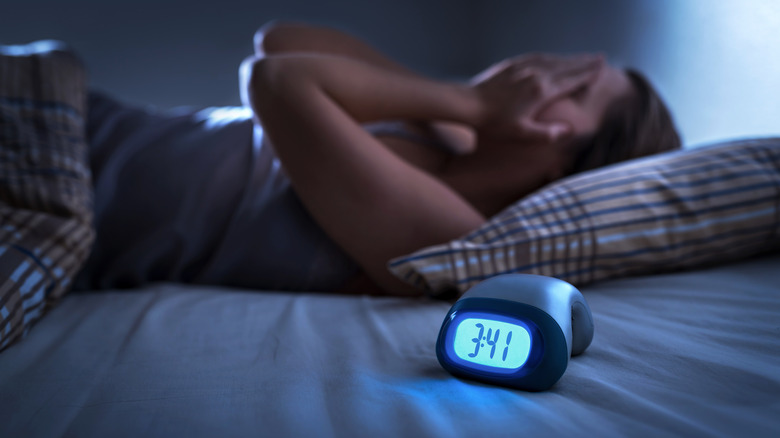Does A Nightcap Before Bed Really Make You Sleep Better?
The average adult needs around seven or more hours of sleep each night, according to the U.S. Department of Health and Human Services. Between family, friends, work, and anything else that might be taking up our time, a full night's sleep can be difficult to achieve, let alone a sound, restful night's sleep. Over time, various practices have been thought up to assist with sleeping well. For example, many people use what's called a nightcap.
A nightcap refers to the before-bed ritual of having an alcoholic beverage. This has long been believed to aid in a good night's sleep. A study published on Cakehealth by Maria Baur explains a week-long sleep test done on 47 college students. The students kept a journal to monitor their sleeping habits, and while seven of them had no alcohol during the study, 33 of them consumed an average of 2.8 ounces of alcohol per night, according to the study.
A nightcap may help you fall asleep faster but won't help you stay asleep
Researchers found that the students who drank alcohol all experienced loss of sleep in the latter half of the night and woke up earlier than usual. According to the Sleep Foundation, those who drink alcohol experience lower sleep quality in the second half of the night from what is called an "REM rebound effect" — basically, a person experiences more REM sleep than normally. When someone uses a nightcap to help them fall asleep, they may sleep soundly in the first half of the night. However, due to the rebound effect, the night's second half won't be as restful.
The Valley Sleep Center website states that REM sleep is vital and plays a huge role in memory retention and learning. Those participants who spent less time throughout the night in REM stage sleep and more time tossing and turning in the second half were missing out on that vital sleep time that's good for brain function. So while a nightcap might help you fall into a deeper sleep more quickly, it isn't necessarily going to be the most beneficial night's sleep.

